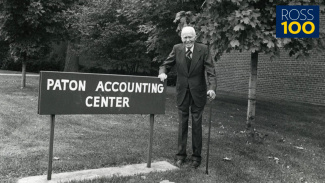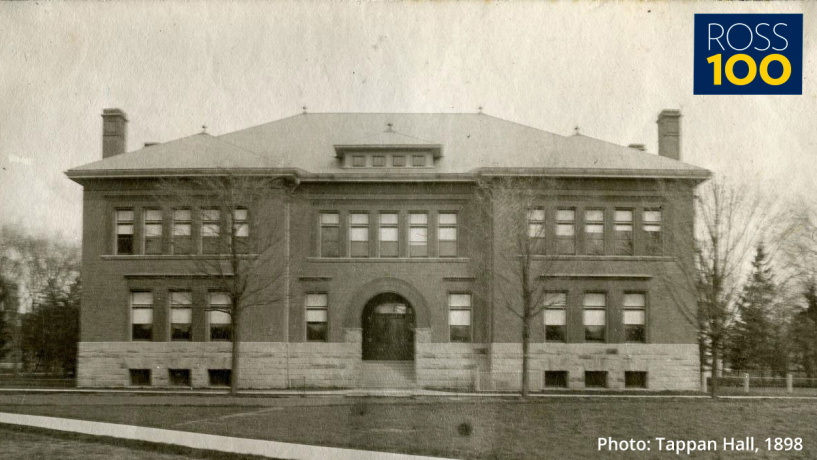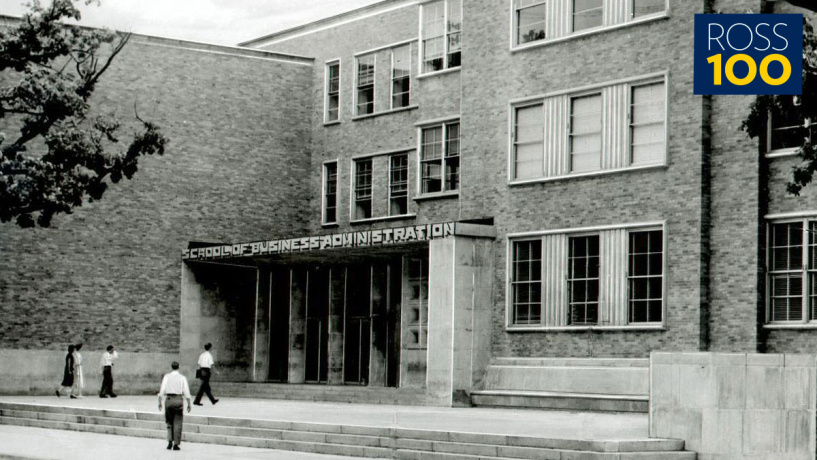Birthplace of Modern Accounting

Michigan Ross has been a leader in scholarly excellence in business since its founding in 1924. One of the key contributions to that scholarly success was the work of Professor William A. Paton, who revolutionized the field of accounting and founded The Accounting Review in 1926. To celebrate Michigan Ross’ centennial, we will look back at the history and impact Paton had on modern accounting.
A Michigan native, Paton’s career began at the University of Michigan. After receiving his undergraduate degree from Michigan Normal College (now Eastern Michigan University) and master's and PhD degrees in Economics from the University of Michigan, he joined the U-M faculty in 1914. Paton spent most of his 40+ year academic career as a professor of accounting at U-M. He notably also had appointments as a visiting professor at other respected universities such as UC Berkeley, The University of Chicago, and Harvard University.
Paton was a visionary accountant and prolific academic. In his storied career at the University of Michigan, he wrote and co-authored over 150 articles and several books on accounting. His primary focus was reforming the role of accounting in the modern business world. The role of accountants up to that point primarily focused on bookkeeping and accurate financial reporting. With Paton's inventive approach to the field, the role transformed into the analytical and predictive position it is today. His most significant work, An Introduction to Corporate Accounting Standards, set the groundwork for future academic works and changed how accounting was taught and researched. Furthermore, his additions of the Accountant’s Guidebook served as an influential accounting resource for decades.
Outside of his own academic pursuits, Paton was dedicated to advancing accounting scholarship and the interconnectedness of scholars and practitioners in the field. He was a founding member of the American Association of University Instructors of Accounting (what is now the American Accounting Association) and served as its president in 1922. The role of the organization was to increase the impact of accounting research. In conjunction with these goals, Paton also founded The Accounting Review in 1926.
As one of the first scholarly publications in the field of accounting, The Accounting Review was focused on publishing articles that gave theoretical and practical advice for accounting professionals. As a trade-focused publication, Paton and his colleagues were able to use scholarship to directly influence the practice of accountants globally. Since the 1960s, the journal has shifted from practitioner-focused scholarship to more mathematic and econometric-focused research. Now one of the top accounting journals in the world, it is notably one of the 50 journals the Financial Times uses to weigh the rankings of Business School research.
After his retirement in 1958, Paton continued to be a central figure in the accounting world as a consultant and teacher. His career was marked with several honors, including his 1944 American Institute of Certified Public Accountants’ Gold Medal Award, 1950 induction into the Accounting Hall of Fame, and his Accounting Educator of the Century award given by the American Institute of CPAs in 1987. He held the title of Edwin Francis Gay Professor of Accounting and Economics until his death in 1991 at the age of 101.
Although his awards and accomplishments are numerous, Paton’s legacy lives on in the thousands of students he had at Michigan Ross. By all accounts, Paton was an incredible teacher and mentor; as one former student recalled, “I would say that I never had a better teacher.”
To this day, Michigan Ross honors Paton’s work as a leader in accounting with the Paton Center for Research in Accounting, which has been ranked the #1 PhD graduate research program in the country since 1990 and the #5 ranked accounting PhD program with 150+ graduates worldwide. The center regularly honors future leaders in accounting through its multitude of undergraduate and graduate fellowships







